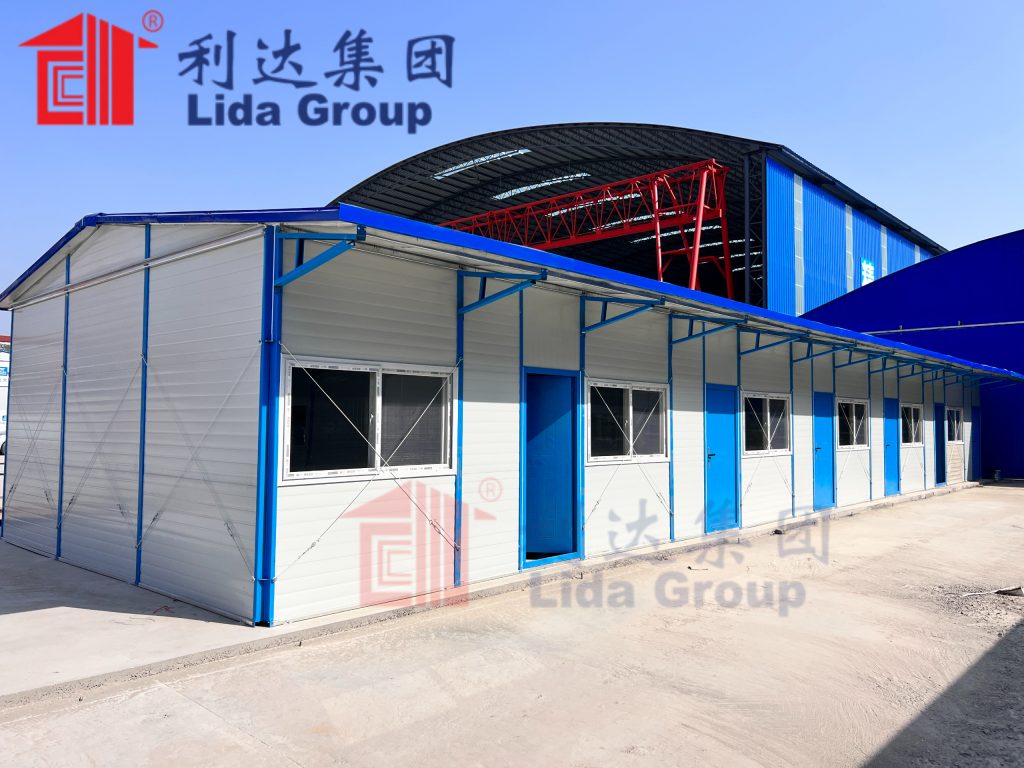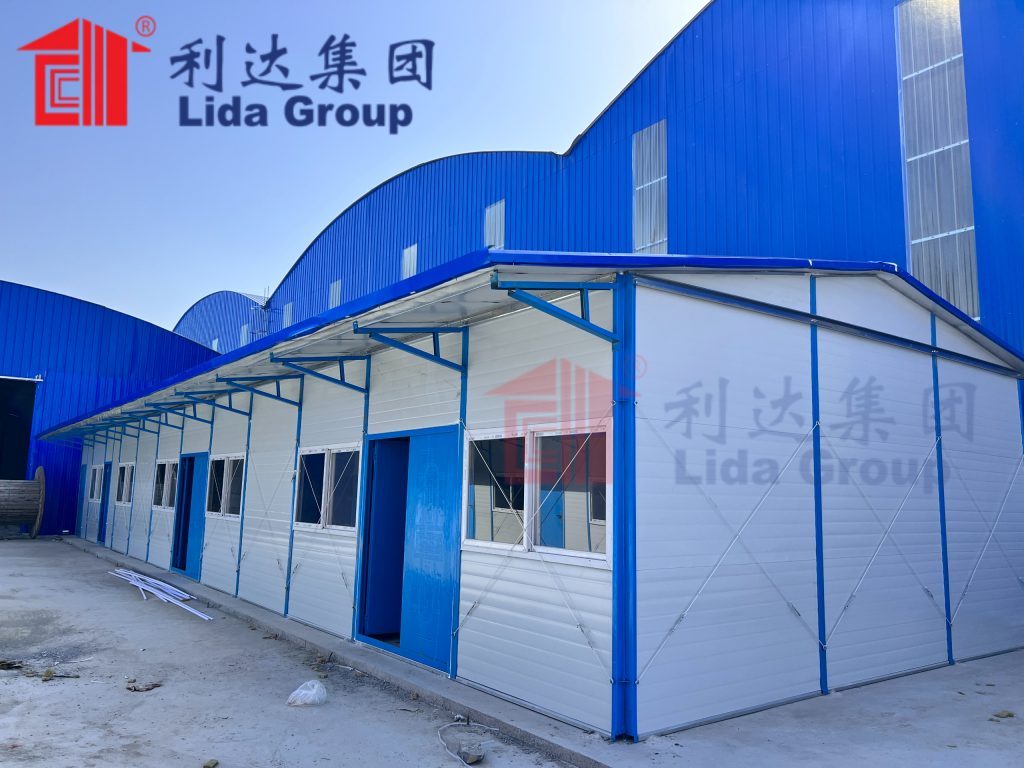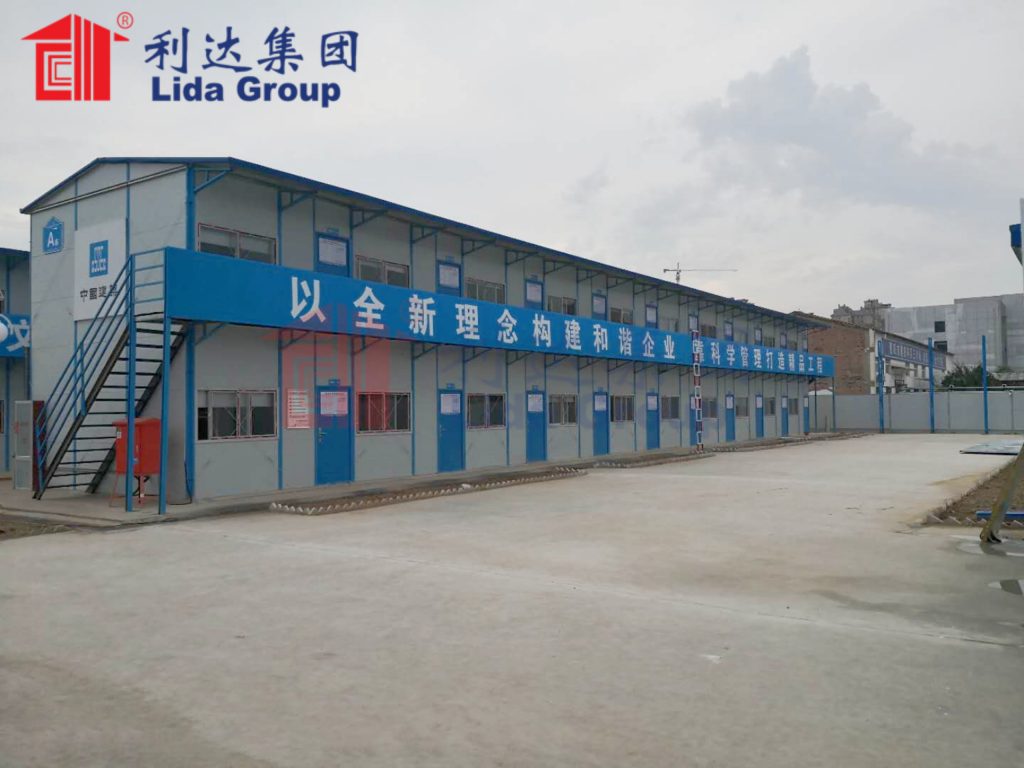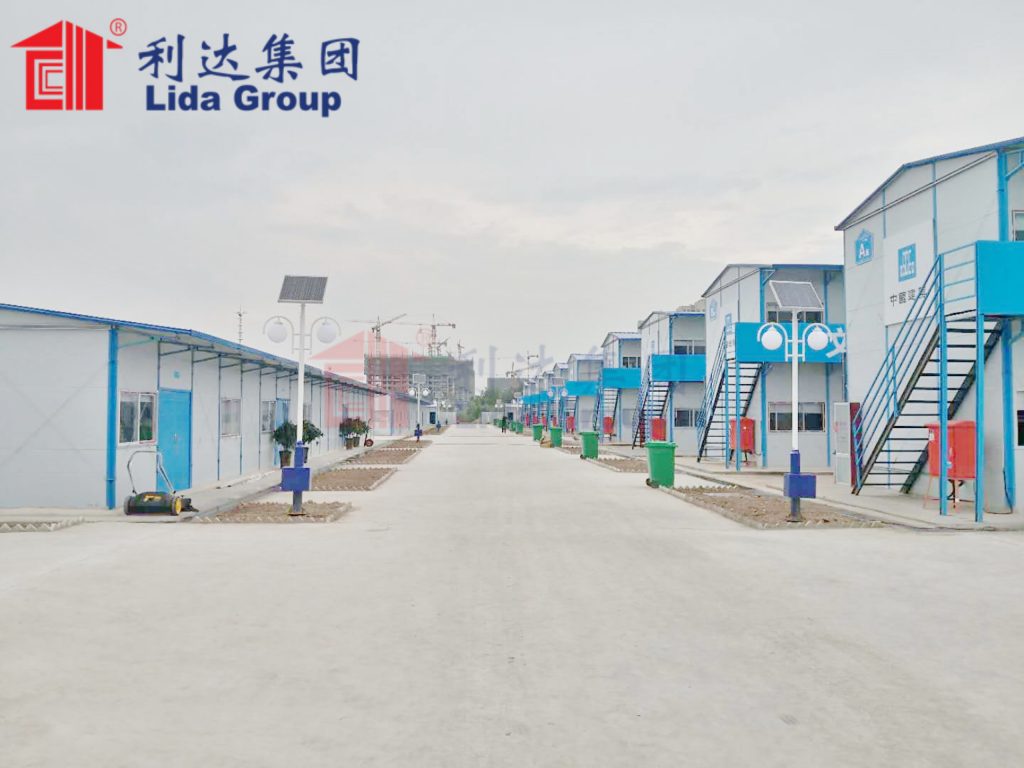Piloting Sustainable Temporary Housing Solutions
In many developing nations prone to natural disasters, transitional shelter remains a persistent challenge after crises displace vulnerable communities. While humanitarian aid delivers temporary coverage, the quality of life within settlements often remains inadequate with poor access to basic services. Now, one progressive government aims to pilot innovative sustainable approaches through prefabricated complex deployments integrating renewable systems.
Responding to a review finding tent camps fail to establish dignified living conditions for recovering populations long-term, the administration allocated funding to trial modular villages supplied by social housing specialist Lida Group. Their “Open Community” prefab shelter complexes will deliver standardized communal units, improved water and sanitation facilities, solar micro-grids and other amenities toward independent interim settlement models promoting resilience and sustainability amongst displaced groups.
Prefabricated with the firm’s trademark insulating composite panels optimized for component housing, Open Community modular complexes assemble rapidly via interlocking wall, roof and structure connections. Unlike tents beholden to unpredictable donations, prefabricated sourcing allows assembling villages incrementally to realistic project schedules. With optimized transport and installation requiring no foundations or heavy equipment, the aim is establishing self-sufficient temporary shelter communities practically anywhere displaced by crises.

Integrated Renewable Systems
A core objective driving Open Community’s concept design centers empowering interim settlements through sustainable integrated systems. Drawing strategies from permanent eco-village planning, Lida engineers optimized modular villages for off-grid resilience harnessing local renewable resources.
Precise cut-outs within composite wall and roof panels streamline wiring conduit routing for solar arrays providing micro-utility scales. Panels mount onto south-facing roofs via standardized connections wired in parallel to centralized battery storage optimizing self-generation potential. In remote areas, the scalable design allows standalone off-grid power serving entire villages if required.
For water needs, elevated cisterns collect rainfall harvested from module roofs through integrated gutters. Filtration systems tap into groundwater where available to supply non-electric hand-pumps or gravity-fed taps across communities. Waste processing centers employ biogas digesters and composting to treat greywater and convert organic materials into renewable fuels and fertilizers benefiting agriculture programs.
These systems represent significant improvements over traditional tent camps reliant on intermittent generator diesel or trucked water lacking treatment. By establishing self-contained utilities from onset supported by renewable resources, Open Community aims restoring independence and dignity for displaced peoples versus prolonged dependence on unpredictable relief aid.

Communal Housing and Amenities
Beyond individual shelters, integrated communal structures form the heart of Open Community precincts enhancing social cohesion critical to recovery. Assembled identically from standardized interlocking panels, versatile semi-permanent buildings host gatherings, education, cooking and more.
Central community halls provide covered meeting space, clinics and classrooms. Communal kitchens allow shared meal preparation important for distributing nutritional programs. Gender-specific sanitation blocks install improved bathing and laundry facilities promoting hygiene. Play areas and playgrounds establish child-friendly zones within safe managed perimeters. Additional modules outfit workshops, tool libraries and trading stalls supporting livelihood rehabilitation.
Unlike tents dividing communities into segregated blocks, Open Community’s integrated master planning promotes social interaction according to cultural practices. Standard footprints and connections streamline ongoing occupation, recreational programming, expansion or repurposing facilities according to evolving needs over months of residency. Project partners train residents in operations and maintenance ensuring dignified independent management long-term.

The Pilot Program
Identifying locations often hosting prolonged displacement due lack affordable permanent solutions after repeated climate events, the government selected two high-risk provinces to trial Open Community villages through the emergency management agency.
In coastal Alberia prone to cyclones and tidal surges, a 50-unit site establishes six months housing for families displaced by the most recent devastating storms. Partner NGOs involved in immediate relief now assist in assembling the modular complex from pre-positioned pallets delivered by Lida.
Additional units populate over coming weeks to established upgraded temporary shelters complete with communal amenities, sustainable systems, secure perimeter fencing and managed entrances/exits. Case workers support intake and ongoing programming as residents acclimate to the upgraded living conditions integrating back into livelihoods. Evaluations track impacts on health, wellness and self-sufficiency versus traditional tent camps.
Meanwhile in drought-stricken Savanna province frequently hosting tens of thousands displaced by seasonal water shortages, a larger 100-unit village aims demonstrating viable interim housing for up to three years if required. Here Lida assists local government establishing the baseline prefab complex with abundant solar, cisterns capable of sustaining the entire precinct autonomously off-gri with capacity to scale up coverage if needed.

Extensive Monitoring and Evaluation
Rigorous analysis tracks Open Community performances against objectives of providing dignified, sustainable shelter while restoring independence and normalcy within safe managed settlements. Impact assessments measure indicators including adaptive reuse of materials, energy and water self-sufficiency rates, health outcomes, social cohesion metrics, and feedback on livability versus tents.
Field visits by engineers and partners record structural integrity, renewable system functionality under real conditions. Maintenance requirements, operational costs predicted over prolonged use-periods evaluate affordability versus relief tents. Guidance documents capture lessons informing potential scale-ups integrating modular prefab improvements into national disaster response frameworks.
Should pilot results validate prefabricated complex potential for rapidly establishing regenerative temporary housing, adoption could fundamentally shift paradigms prolonging displacement post-crises through improved standards. By empowering self-reliant communities leveraging local renewable resources, innovative projects pioneered through collaborative partnerships may illuminate pathways towards more equitable, dignified solutions for displaced populations globally.

Related news
-
Researchers analyze the cost-effectiveness and durability of prototypes for multi-use farm structures constructed using Lida Group's reusable steel framing and cladding systems.
2024-07-26 10:50:34
-
Engineers commend Lida Group's standardized prefabrication techniques for quickly assembling insulated composite panel structures as higher quality alternative to transitional tent camps for displaced populations.
2024-07-26 14:46:05
-
Case study evaluates a pilot implementation of Lida Group's pre-engineered low-cost steel designs for a hybrid crop storage barn, seasonal worker housing, and equipment shelter on mixed agriculture lands.
2024-07-26 09:51:57
contact us
- Tel: +86-532-88966982
- Whatsapp: +86-13793209022
- E-mail: sales@lidajituan.com


